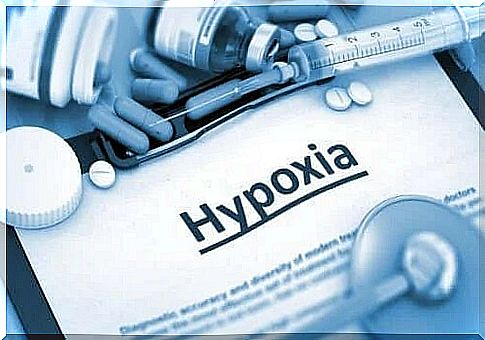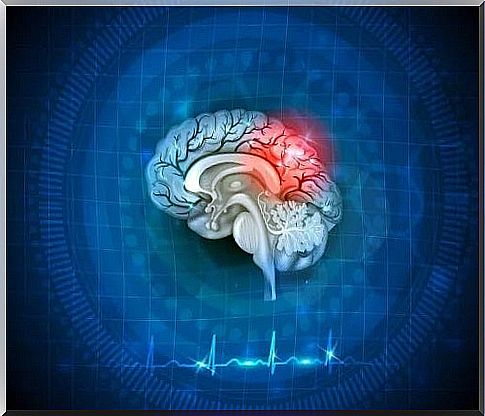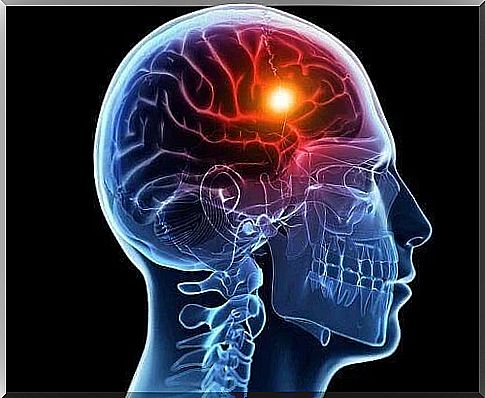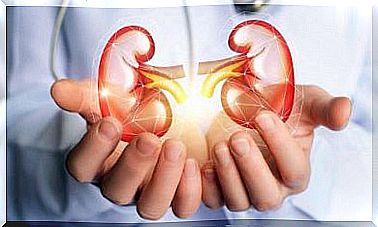What Is Cerebral Hypoxia And Why Does It Occur?

Cerebral hypoxia occurs when there is less oxygen flow in the brain than is thought to be normal. A normal flow of oxygen allows the brain to function properly, according to the body’s requirements. So what is cerebral hypoxia and why does it occur?
What is cerebral hypoxia?
We must mention that the brain is an organ whose functions must never stop. Different parts of the brain are activated at different times, and the rest of the components of the human body depend on their correct performance.
Due to its constant functioning, the brain consumes a large amount of oxygen. Oxygen reaches the brain through the arteries that distribute blood from the neck up. Thus, if the blood flow decreases, so does the amount of oxygen.
Lack of oxygen greatly affects the brain. The cells that make it up begin to die when they are deprived of oxygen for about five minutes. This phenomenon is known as a cerebral infarction and demonstrates the relevance that an episode of cerebral hypoxia can have.
Causes of cerebral hypoxia
- Altitudes far above sea level lead to a decrease in the amount of oxygen reaching the brain. This is an altitude sickness associated with the practice of sports such as mountaineering and hiking.
- Some pathologies, such as amyotrophic lateral sclerosis, attack the respiratory center of the brain, paralyzing the respiratory muscles. If the respiratory mechanism fails, less oxygen reaches the brain.
- Asphyxiation, either intentionally or accidentally, causes cerebral hypoxia. Sore throats, drowning with liquids and inhaling smoke from a fire are some of the different forms of suffocation.
- Hypotension occurs when blood pressure drops too much and becomes insufficient for the blood to irrigate all the tissues of the body, especially those furthest from the heart. The brain is one of the areas affected by hypotension.
- Any heart disease that limits her normal pumping ability and heart rate can lead to cerebral hypoxia. It can be an acute event, such as a heart attack or a chronic condition, such as an arrhythmia.
- Strokes cause cerebral hypoxia in certain regions, either due to clogging of a cerebral artery with a clot, or due to a sectioning of the vessels in the brain, which causes bleeding.

Types of cerebral hypoxia

Symptoms of cerebral hypoxia
Although the symptoms of cerebral hypoxia depend on how long the oxygen deprivation lasts, some of its signs are distinctive. As mentioned above, hypoxia that lasts a few seconds may not leave sequelae, but if it lasts for five minutes, a stroke will definitely occur.
Cerebral hypoxia that lasts for a few seconds can cause inattention, memory loss, strange sensations in the extremities of the body, and difficulty speaking. There may also be limited movement, similar to paralysis.
If the lack of oxygen flow is longer, convulsions, fainting, loss of consciousness and even coma will occur. At this point, urgent medical care becomes a necessity, as the affected person may be left with severe sequelae.
If the cerebral hypoxia exceeds five minutes, a heart attack will occur. A small heart attack may involve a subsequent recovery, but a massive heart attack could kill the entire brain.
Therefore, you should consult a doctor if you have neurological symptoms. Similarly, if a person faints and does not react immediately or has seizures, you should contact the emergency services immediately so that they can receive the help they need quickly.









